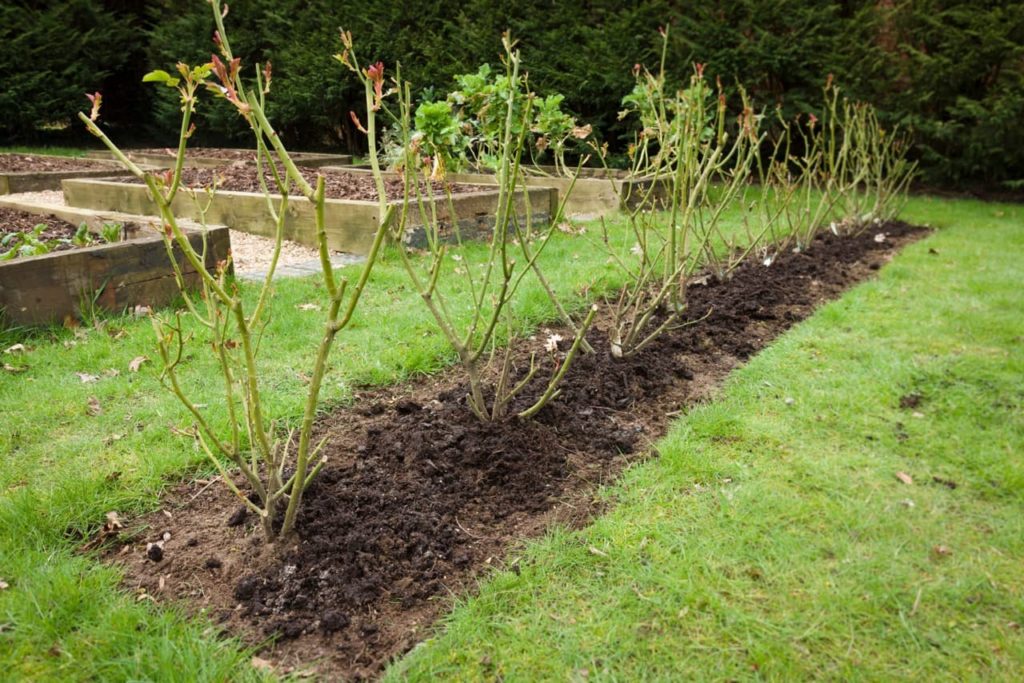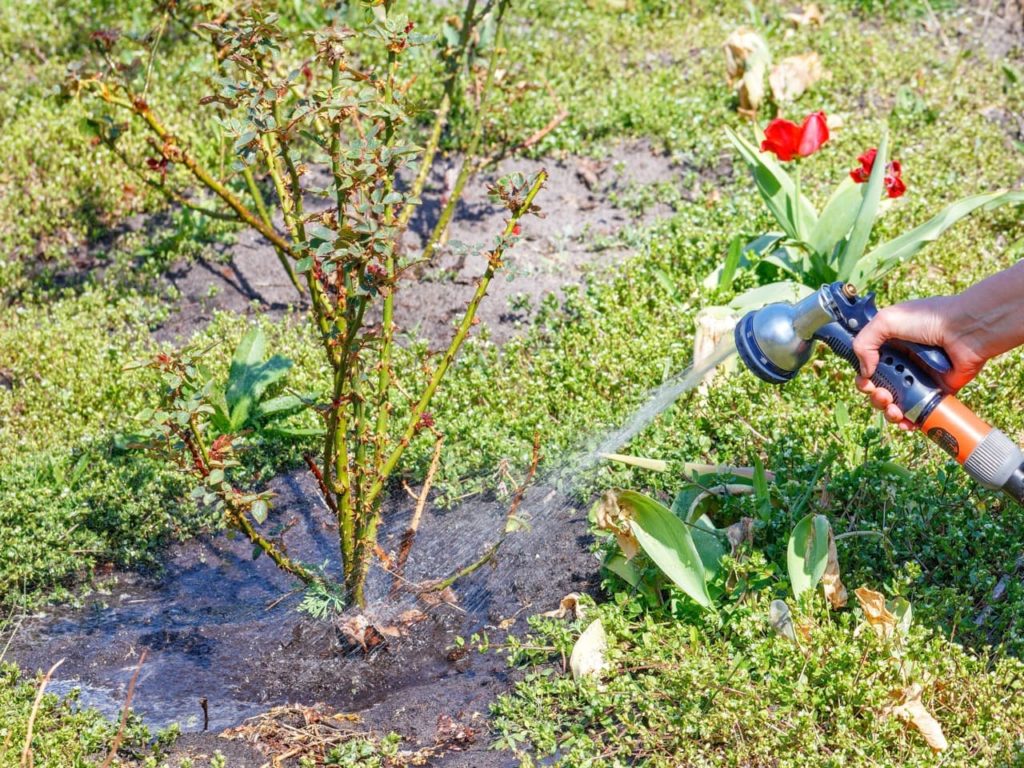Phillip Harkness On Yellowing Rose Leaves – ‘Prevention Is Better Than The Cure’

PERENNIALS > ROSES > YELLOWING-LEAVES
Reviewed By COLIN SKELLY

Colin is a Horticulturist and Horticultural Consultant with experience in a range of practical and managerial roles across heritage, commercial and public horticulture. He holds the Royal Horticultural Society’s Master of Horticulture award and has a particular interest in horticultural ecology and naturalistic planting for habitat and climate resilience.
Contributions From PHILIP HARKNESS

With over 45 years as a Co-Owner of Harkness Roses, Philip has made a name for himself in the rose industry. His plant nursery won gold medals at the Chelsea Flower Show in 2021 and have bred various new roses, including ‘The Duke of Edinburgh’ rose, which was handed to the Late HRH Queen Elizabeth II to commemorate what would have been her late husband’s 100th birthday.
IN THIS GUIDE
Roses are perhaps the most cherished of flowering bushes because their blooms are the most prized of flowers.
Unfortunately, little that is cherished and prized comes easily and roses are no exception – meaning they can succumb to many a pest, disease and deficiency.
One symptom of many problems is yellowing leaves.
Not only are yellow leaves on a rose bush a disconcerting sight, they always indicate an issue that is best diagnosed and treated urgently.
Underneath we lay out six causes of yellow leaves on rose bushes and also make some suggestions for treatment.
1) Spider Mite Infestation
Spider Mites are one of the more common types of pests that rose bushes are vulnerable to.
If the infestation is an advanced one, the rose bush, unfortunately, may not be saveable, but caught early enough, spider mites can be eradicated.

First, wash off all the mites and strands with jets of water from a hose.
Next, apply a plant insecticide strictly according to the maker’s instructions.
Finally, release biological controls such as lacewings, mite-feeding ladybirds and such.
2) Black Spot
A fungal disease, black spot is one of the more common, as well as one of the more serious, diseases that can affect a rose bush.

“Plants are no different to people, prevention is better than cure,” shares Philip Harkness, from Harkness Roses.
Fortunately, it can be treated with fungicides.
Apart from treating the disease, you will also need to take steps to prevent it from spreading.
“Milder, wetter counties are perfect conditions for black spot,” says Horticultural Consultant Colin Skelly.
“If you find that your rose is prone, rather than repeatedly spraying with fungicide, remove it and replace it with a cultivar that has better resistance.”
3) Nutrient Deficiencies
As the problem could be either iron deficiency or alkaline soil or both, the best course of action is to first test the soil pH.
If the soil pH is higher than 7.5, then the reason is alkaline soil, but if it is up to 7.0, then the problem is iron deficiency (or possibly magnesium or sulphur deficiency).
You could treat each issue independently or apply sulphate of iron which will resolve both problems, albeit over time.

Dilute and use according to the manufacturer’s instructions.
As a more immediate treatment, apply chelated iron as a foliar spray.
It is a niche product that is made by specialist manufacturers.
Apply foliar sprays near dawn in the late evening or on overcast days.
4) A Lack Of Nitrogen
A nitrogen deficiency in the soil can also be caused by an alkaline soil pH.
First test the soil pH with a pH meter. If it is 7.5 or higher, then you should acidify the soil.
The quick and easy way to acidify soil is by amending the soil with ericaceous compost, particularly if the problem is not acute.
“If you have alkaline soil or acidic soil, I would recommend not trying to grow roses rather than trying to tackle the underlying soil conditions, which will always prevail in the end,” says Colin.
“Alternatively, search for a rose that will tolerate a wider range of conditions – most rose nurseries will have some options.”

If the soil could use some added fertility and richness, you could kill two birds with one stone by amending it with well-rotted chicken manure.
If the soil is very alkaline, mix sulphate of ammonia into the compost or manure.
It will not only lower the soil pH, but it will also introduce Nitrogen into the soil.
If the soil pH checks out and the problem is a nitrogen deficiency, blood meal will do the trick in normalising it.
The rose bush will take time to recover, so bear this in mind.
5) Underwatering The Soil
Drench the soil.
Afterwards, be sure to water the bush properly and not let the soil stay dry for any great length of time, especially during hot weather.
If you have eliminated all the preceding possibilities in trying to diagnose the cause of yellow leaves on your roses, then the final issue might be harder to diagnose.
6) Overwatering Or A Lack Of Sun
Roses need to be planted in a full sun spot.
If your rose bush is growing in the shade, it will need to be transplanted to a sunny spot or the objects or elements that are throwing shade on the bush will need to be adjusted.
Though roses unquestionably need water, the soil should not stay wet, let alone waterlogged.
These shrubs need to be rooted in well-draining soil that is light and not dense or clayey.

If the problem is overwatering, the solution is easy enough.
Although you cannot prevent all the problems that may affect a rose bush, a defensive approach is well-suited for rose growers.
“Don’t be afraid or frightened of the task,” says Philip.
“Plants, not just roses, have the will to live and survive. As long as you try to help your garden plants with careful cultivation, they are hard to kill.”
You have to get factors like sunlight, soil constituents, soil moisture, soil pH and proper nourishment right for roses more than for most other shrubs because roses are more vulnerable to a variety of pests and diseases.

